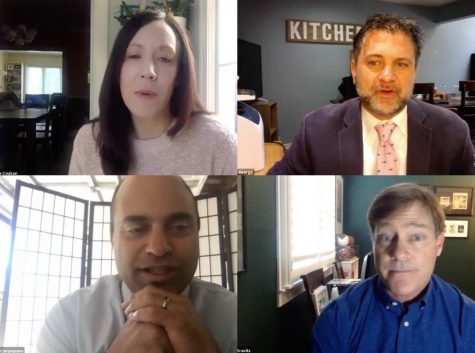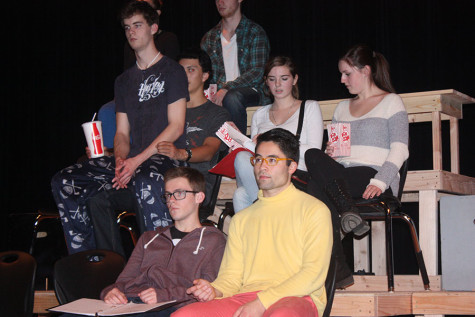On the Efficacy and Need of Monday Schools
Monday schools are like magistrate-run courts. They try to make it seem serious, but in reality everyone just walks away with some form of discipline that’s enough to irk you, but not enough to actually change your behavior in any way.
The similarities between high school correctional programs and facets of the US justice system, however, do not end there.
Here at Cal High, we too can observe skewed incarceration rates that misrepresent our society’s demographics as a whole. The mainstream news outlets may have you believing that, nationwide, law enforcement predicates criminality primarily on race, but a peek inside Mondays’ after-school detentions tells an entirely different narrative.
Upon one’s first analysis of the unfortunate detainees, no particular generalizations based upon race, gender, or much else can be made. But, much like an offensively niche joke, you get what’s happening after a few seconds.
At a closer look, one sees that a majority of the students held here (when I visited, it was at least over 1/2) are seniors.
Is this an incorrect cross section of the entire student population of Cal High, or do members of the graduating class really file for moral bankruptcy as often as all the other classes combined? Should a handful of tardies, a few counts of leaving class early, or “allegedly” accessing “illegally downloaded” content really carry the sentence of 3 hours of deadpan silence, or is our real crime our age and desire to leave high school to bigger and better prospects?
The conditions in these rooms of supposed academic discipline are so deplorable, they seem to come out of Horace Mann’s and Dorothea Dix’s collective nightmare. For around 3 hours, students are forced to sit in total silence, like they were stuck in some sort of single-sensory deprivation chamber.
“ ,” said one student about being unfairly locked in a room with no method of communicating with others.
At least prisoners in Alcatraz could talk.
Next, students are prohibited from doing really anything aside from reading, studying, or working on homework. One wonders, do equal parts silence and math homework really stop students from making bad decisions in the future, or are they just characteristic of a too literal definition of “concentration camps”.
Conservative critics will be quick to lay the blame on the students here, saying that they should be more focused on our schoolwork, that they shouldn’t be running over to our cars to dip out at every possible opportunity, or that how should we know you really have “allergies”?
But one can conclude the blame is to lie not on the systematically disenfranchised, but on the system itself. Rules that seem fair on paper end up becoming forms of de facto discrimination in practice.
For one example, all students are to be kept from going off-campus or leaving school early, but only upperclassmen would own cars and have the ability to do so in the first place.
Similarly, students are frowned upon coming to school late, but the seniors, the ones most commonly accused of causing such infractions, are the ones who should be encouraged to practice for late-starting college classes.
All in all, disciplinary measures such as Monday school seem to be less effective than having class on Senior Ditch Day, more targeting than those weirdly specific Facebook ads, and just about as passive-aggressive, half baked of a method of telling us we messed up as all of that one girl’s subtweets.
So, why even bother having them?


